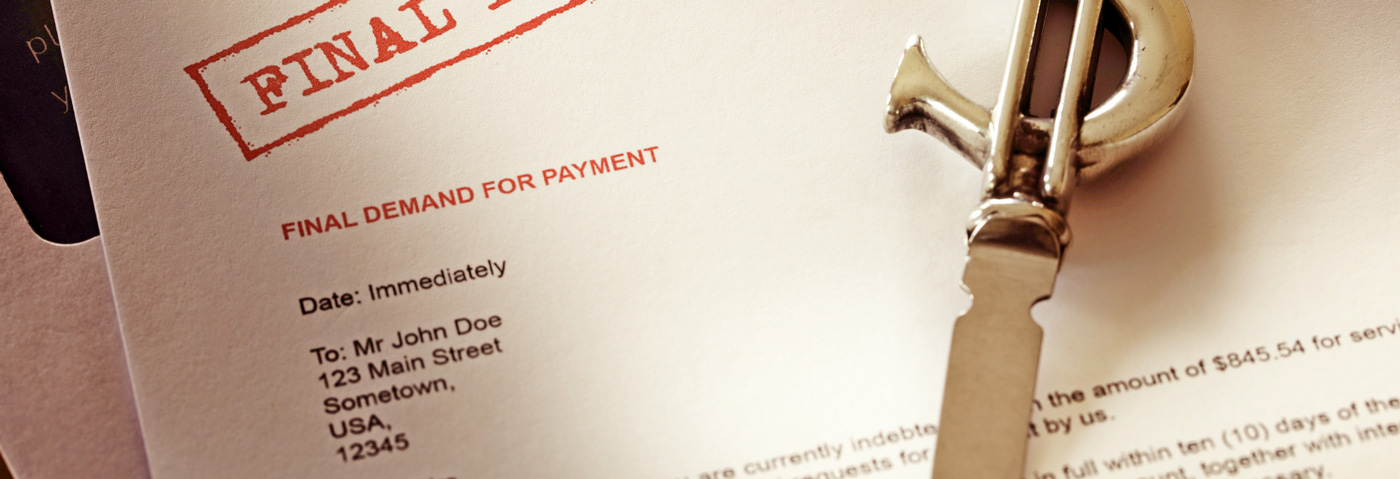When receivables go dark, cash flow takes a direct hit. For owners, CFOs, and enterprise credit leaders, every day of delay risks write-offs, skews DSO (days sales outstanding), and drains working capital. That’s where a debt collection attorney enters the picture. If you’ve ever asked, “What services does a debt collection attorney provide?”, the short answer is: a complete end-to-end toolkit to recover what you’re owed while protecting your brand, complying with complex rules, and moving fast.
Unlike general counsel or a standard collection agency, a seasoned collection attorney blends legal leverage, courtroom experience, and negotiation skills with commercial practicality. They don’t just send letters—they design a playbook. That includes triage (which matters to sue, which to settle, and which to close), airtight documentation, efficient filings, and judgment enforcement that actually reaches assets. For large organizations, they also scale: aligning recovery tactics with portfolio segments, risk thresholds, and internal reporting.
Commercial vs. Consumer Collections (and Why It Matters)
Commercial collections involve business-to-business (B2B) debt, which is governed by a different risk profile and sometimes different compliance contours than consumer debt. The tone is more contractual, the documentation is heavier (purchase orders, master service agreements, personal guarantees, UCC filings), and the counterparties are companies—not individual consumers. This means a debt collection attorney can lean into contract rights, business realities, and remedies tailored to commercial conduct, like prejudgment remedies, replevin, or receiverships, where appropriate.
Pre-Legal Strategy & Risk Triage
Before anyone files a lawsuit, there’s homework. Attorneys start by auditing your claim: invoices, purchase orders, delivery proofs, emails, credit applications, personal guarantees, and any prior settlement offers. They’re looking for friction points—missing signatures, ambiguous terms, or conditions that could be used as a defense. Tightening documentation often moves a debtor from “stonewall” to “let’s talk.”
Account Review, Documentation, and Compliance Checks
A strong attorney will:
- Validate the legal name, entity type, and registered agent of the debtor.
- Confirm jurisdiction and venue, considering forum selection and arbitration clauses.
- Identify guarantors and co-obligors.
- Flag compliance requirements (e.g., state-specific demand timing, notice provisions in the contract).
- Estimate recoverability using data like prior liens, UCC filings, litigation history, and public records.
This triage informs whether to push a demand letter, propose a business resolution, or file immediately to prevent asset flight.

Demand Letters & Negotiation
A demand letter from counsel signals seriousness. It’s precise on facts and law, demands payment or a clear plan, and sets deadlines. Legal letterhead is not magic—but it’s leverage, because it implies readiness to sue and competence to execute.
Payment Plans, Settlements, and Forbearance Terms
Many commercial debts resolve here. Attorneys structure:
- Short-term payment plans with default triggers.
- Discounted settlements for accelerated, guaranteed cash.
- Forbearance agreements that pause litigation while the debtor performs.
- Confession of judgment / stipulated judgment where available, reducing the cost to enforce if the debtor defaults.
- Security interests or consensual liens to protect your priority.
The aim is practical: net present value beats perfect outcomes that arrive too late.

Litigation Readiness & Filing
If the debtor refuses to engage—or you need injunctive relief—your attorney prepares to file. Timing is strategic: sometimes filing quickly discourages asset dissipation; other times a final pre-suit call unlocks an agreement.
Pleadings, Motions, and Discovery
Once filed, counsel handles:
- Complaint and service of process in the correct venue.
- Motions (to dismiss, for summary judgment, or for prejudgment remedies).
- Discovery: interrogatories, document requests, depositions, and subpoenas.
- Expert use where damages calculations or industry customs matter.
- Opposing defenses like defective performance claims, offsets, or accord and satisfaction.
A good litigation plan balances speed, budget, and the likelihood of collectible assets at the end.
Judgment, Enforcement & Asset Recovery
Winning a judgment is step one; getting paid is the win that matters. Attorneys map enforcement pathways based on the debtor’s asset profile.
Liens, Garnishments, Receivers, and Turnover Orders
Common tools include:
- Judgment liens on real property or business assets.
- Bank and wage garnishments (where permitted).
- UCC remedies for secured claims.
- Post-judgment discovery to uncover hidden accounts, affiliates, or transfers.
- Receiverships to stabilize a distressed business and preserve value.
- Turnover orders compelling delivery of specific assets.
- Contempt for willful disobedience of court orders.
Attorneys also track judgment domestication and renewal deadlines so your rights don’t lapse.

Cross-Border & Multi-Jurisdiction Claims
Modern receivables sprawl across states and countries. Your attorney coordinates local counsel, manages service of process abroad, and uses treaties or local statutes to recognize and enforce judgments.
Choice of Law, Service of Process, and Recognition of Judgments
They’ll analyze governing law and venue clauses, evaluate prospects of recognition (e.g., under the Uniform Foreign-Country Money Judgments Recognition Act in many U.S. states), and ensure documents are properly translated, apostilled, or legalized. The result: fewer procedural snags and more predictable timelines.
Bankruptcy & Insolvency Interface
If your debtor files for bankruptcy or enters insolvency proceedings, the “automatic stay” can freeze your litigation. Debt collection attorneys pivot to protect your position within those rules.
Proofs of Claim, Preference Actions, and Stay Navigation
Services here include:
- Filing proofs of claim with correct priority and documentation.
- Seeking relief from stay in narrow circumstances.
- Defending preference or fraudulent transfer claims if the trustee tries to claw back payments made to you.
- Negotiating reaffirmation agreements or critical vendor status where applicable.
- Participating in creditor committees for large cases.

Alternative Dispute Resolution (ADR)
Courts are slow; business is fast. Many contracts require arbitration or encourage mediation. Attorneys who understand ADR can compress timelines and reduce costs.
Portfolio Strategy for Enterprises
Enterprise leaders aren’t chasing one invoice; they’re managing hundreds or thousands with different risk profiles. Attorneys help architect a portfolio-level strategy.
Scoring, Segmentation & Contingency vs. Hourly Mix
Segmentation by balance size, age, industry, and debtor risk signals.
Scoring models to prioritize fast-moving files.
Fee design: contingency for small/medium balances, hourly or flat for complex litigation, blended for cross-border.
KPIs: recovery rate, cycle time, cost-to-collect, and net return after fees.
Playbooks codified by segment, so internal teams know exactly when to escalate.
Data, Reporting & Compliance (Regulatory & Contractual)
Executives want visibility. Attorneys provide auditable workflows and reporting that satisfies internal policy, lender covenants, and regulatory expectations. That includes secure data handling, documented approvals, and consistent status updates your finance team can plug into dashboards.
Auditable Workflows & KPIs for the C-Suite
Expect periodic reports with:
- File inventory and stage (pre-legal, litigation, judgment, enforcement).
- Aging and expected value per segment.
- Budget-to-actuals on fees and costs.
- Compliance checkpoints (notice periods, consent requirements, jurisdictional quirks).
For a primer on business debt collection practices, the U.S. Federal Trade Commission hosts accessible guidance for companies and vendors (see the FTC’s business resources here: ftc.gov/business-guidance).

How Retrievables Helps Businesses Find the Right Fit
Retrievables is purpose-built for commercial debt collection. The platform helps you:
- Match with vetted collection attorneys or agencies based on claim size, industry, and jurisdiction.
- Optimize for strategy: pre-legal firm for fast settlements, litigation-ready counsel for complex disputes, or a cross-border specialist for international accounts.
- Compare fee structures (contingency, hourly, flat, or hybrid) transparently.
- Coordinate multiple matters from a single dashboard with status tracking and milestones.
- Maintain compliance with standardized onboarding, NDAs, and data-security expectations.
Think of Retrievables as the routing layer for your receivables: it pairs the right file with the right professional at the right time. Instead of hoping a single vendor can do it all, you can assemble a fit-for-purpose roster—and swap tactics as the facts change. That’s how you convert more invoices into cash, faster, while controlling cost-to-collect.
FAQs
-
What services does a debt collection attorney provide?
They handle the full recovery lifecycle: triage, demand letters, negotiation, litigation, judgment, and enforcement (liens, garnishments, receivers, turnover orders). They also address cross-border claims, bankruptcy issues, and ADR. For enterprises, they design portfolio strategies and reporting.
-
How do I decide between a collection agency and a collection attorney?
Agencies are efficient for early-stage, lower-balance files at scale. Attorneys are essential for disputed, higher-value, complex, or urgent matters requiring legal leverage. Many enterprises use both: agencies for volume, attorneys for escalations. Retrievables helps you pick the right lane.
-
What documents should I have ready before escalation?
Invoices, statements, signed contracts/MSAs, purchase orders, delivery/acceptance proof, email trails, credit applications, guarantees, payment history, and any prior settlement notes. Complete files speed resolution and cut your legal spend.
-
Can an attorney help if the debtor is in another state or country?
Yes. They coordinate local counsel, ensure proper service, and—if needed—domesticate and enforce judgments in the debtor’s jurisdiction. Cross-border specialists understand recognition rules and asset tracing.
-
How are fees structured?
Commonly contingency (percentage of recovery), hourly, flat, or blended. The right choice depends on claim size, complexity, and expected collectability. Good attorneys are transparent about costs and likely outcomes.
-
What happens if the debtor files bankruptcy?
Litigation usually pauses due to the automatic stay. Your attorney files proofs of claim, seeks relief from stay when appropriate, defends preference actions, and protects your priority position. Early action matters because deadlines in bankruptcy are tight.
-
How fast can I expect results?
Speed depends on documentation quality, debtor cooperation, jurisdiction, and court backlogs. Many commercial matters resolve at the demand or negotiation stage. Complex, disputed cases may require litigation and enforcement.
-
How does Retrievables pick the “right” attorney or agency?
By matching your industry, claim profile, and jurisdiction against a network of vetted professionals and historical performance data—so your tech receivables don’t go to a vendor optimized for freight, and vice versa.
Agency vs. Attorney at a Glance
| Factor |
Collection Agency |
Debt Collection Attorney |
| Best For |
Early-stage, high-volume, lower balances |
Disputed, high-value, urgent, or complex claims |
| Tools |
Calls, letters, skip tracing |
Demand + litigation + enforcement |
| Speed |
Fast outreach at scale |
Strategic leverage; can be fast post-filing |
| Cost Model |
Mostly contingency |
Contingency, hourly, flat, hybrid |
| Outcome Control |
Limited without legal action |
Full legal remedies to judgment & beyond |
| Ideal Use |
Pre-legal recovery |
Escalation and complex enforcement |
Conclusion
For leaders managing cash flow, receivables are not just numbers; they’re the oxygen of the business. If you’ve been wondering, “What services does a debt collection attorney provide?”, the answer is a practical, end-to-end system: strategic triage, persuasive demand, decisive litigation, and relentless—but compliant—enforcement. They also navigate cross-border reality, bankruptcy detours, and portfolio-level reporting, so the C-suite knows what’s happening and why.
And you don’t have to search in the dark. Retrievables focuses on commercial debt collection and helps you find the most suitable collection attorney or agency—fast. With better matching, clearer fee structures, and live status tracking, you turn stuck invoices into recovered cash while staying aligned with your brand and compliance standards.
Updated September 25th 2025
Author: Jeremy Crane








